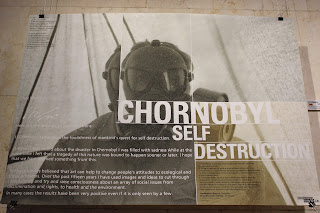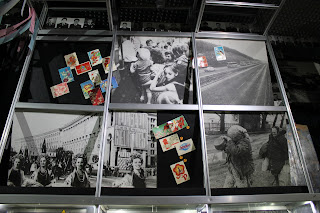The Church of Christ for Everybody was planted in the village of Tuzhar some time before Pastor Aleksander moved up there 7 years ago. Small but active church presence reminded me of the churches I visited in Fukushima earlier this year.
When Pastor Aleksander was first called to shepherd this church in Tuzhar, a village located on the boarder with Belarus and also close to the Chernobyl nuclear plant, he received a promise of God's healing on the land from the Old Testament. It is clearly demonstrated - not only written in the wall, but also in his life together with his congregation.
 |
"If my people, who are called by my name,
will humble themselves and pray and seek my face and turn from their wicked ways,
then I will hear from heaven, and I will forgive their sin and will heal their land.
Now my eyes will be open and my ears attentive to the prayers offered in this place."(2 Chronicle 7:14, 15)
Before we sat down to listen to the stories of two ladies in the village who lived through the whole time since the nuclear disaster in Chernobyl, we were very warmly received with delicious local Ukrainian food, cooked with vegetables all grown locally. They loved their locally grown produce - a sign of God's promise of healing on their land.
 |
| (from left to right) Pastor Aleksander, Maria and her neighbor, myself and Myroslava |
I had simple two questions.
- What do you remember about the disaster? What happened?
- Why did you stay instead of moving out?
"It's our home. We have nowhere else to go."
25 years after the disaster, Tuzhar is now gaining vitality as a community again with the increasing number of families with young children. As we were leaving the church, we saw a couple of boys riding on their bicycles. Pastor Aleksander greeted them as one of them came to wave at us. Another sign of God's healing on the land.






















